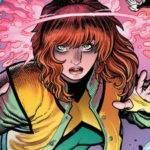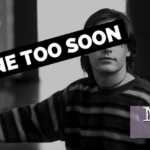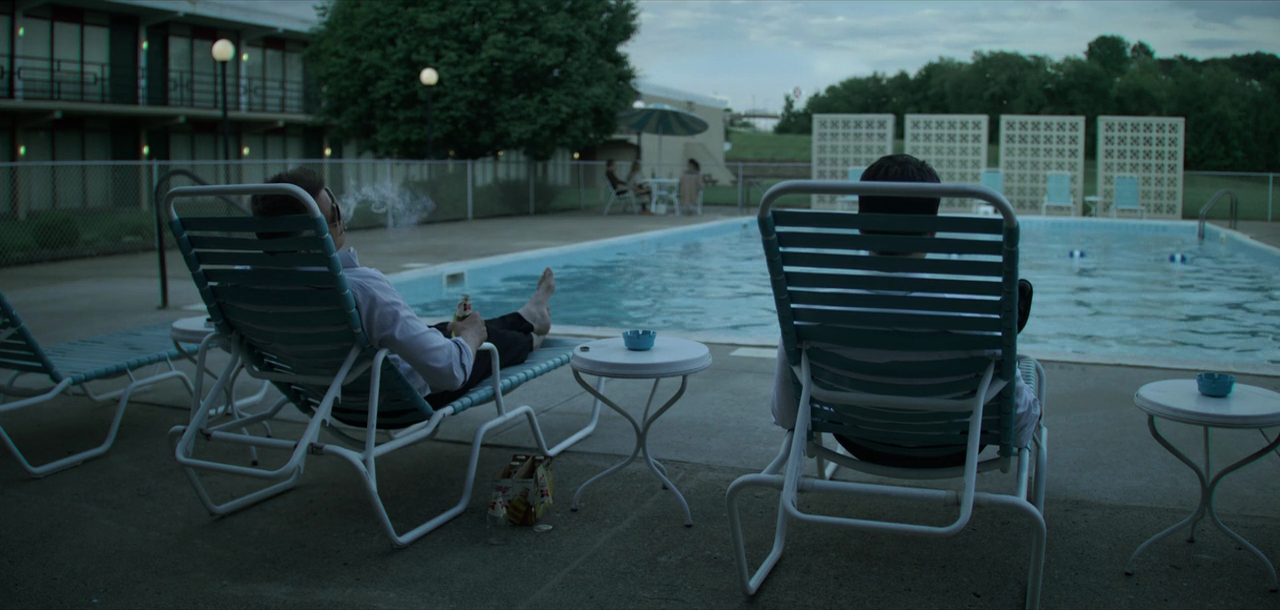
Mindhunter Season 1, Episode 1
Director: David Fincher
Starring: Jonathan Groff, Holt McCallany, Anna Torv, Hannah Gross
Writer: Joe Penhall
A review by Michael Walls-Kelly
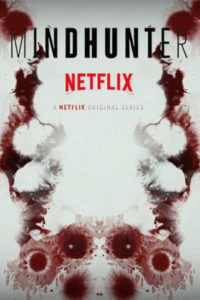
Why do we behave the way we do?
A man has taken a number of people hostage and demands to see his wife. Local law enforcement is trying to control the scene. A man from the FBI shows up and tries to talk to him. The man eventually blows his brains out.
It’s a stark opening, a tense and measured statement of where the FBI is at in 1977 when it comes to its understanding of the mind. The FBI agent is Holden Ford (Jonathan Groff), a name so generic-white-cop it should have its own badge and gun. The situation that unfolds in the opening shows that he is missing the tools and understanding necessary to defuse the situation effectively. But it isn’t a mark against Ford. He’s clearly trying and what happens in that hostage situation is the seed of the entire series.
Mindhunter is a 10-episode series on Netflix — already renewed for a second season — which is produced by David Fincher, Charlize Theron and based on the book Mind Hunter: Inside the FBI’s Elite Serial Crime Unit. Every single guilty pleasure procedural you watch on TV, whether it’s Law & Order: SVU, Criminal Minds, or NCIS, owes its existence to the work depicted in Mindhunter, even allowing for the liberties it takes. We get to witness the growth of the Behavioral Science Unit. An intertwining of sociology, psychology and even philosophy with criminology.
When Ford becomes a teacher at Quantico, his inquisitive nature takes hold. He’s living in the time of Son of Sam*. The very nature of spree killers and so-called psychopaths are questions asked by society and culture as a whole. In order to stay ahead, and to better predict and defuse intense situations, Ford believes in understanding the mindset of these perpetrators and thus preventing them.
*David Berkowitz is one of a few famous killers name-dropped in the first episode. While Ford discusses the state of the world over a drink with a colleague, they mention Richard Nixon, Vietnam, Watergate, Charles Starkweather, Charles Manson and Richard Speck.
It’s pretty fun to watch a strait-laced Fed expand his mind. He goes to see Dog Day Afternoon with his free-spirited sociology student girlfriend, Debbie (Hannah Gross) and the scene of Ford trying to understand the motivations of characters trying to understand their own motivations is funny and eye-opening. Ford even ends up using Dog Day Afternoon while teaching at Quantico. It’s a nice, subtle nod to the fact that art can explore and illuminate as much as official channels can, which seems to be part of Ford’s genesis. The FBI is no longer the organization tasked with taking down bank robbers. They need to deal with a much more illusory type of criminal. One who may not fit into the perfect boxes that law enforcement wishes.
As Ford continues to expand the scope of his teaching, he’s introduced to Bill Tench (Holt McCallany), the man who basically started the Behavioral Science Unit. Ford is very much in the mold of a “Fine Young Republican.” Tench is Dad-as-Hell with his high-and-tight haircut, ex-college football build, and serious, serious eyes. McCallany, an underrated talent, is perfect for the role. He’s stern without being condescending and warm without being mushy. He appreciates Ford’s curiosity and invites him to help as he goes to local police forces and instructs them about behavioral science.
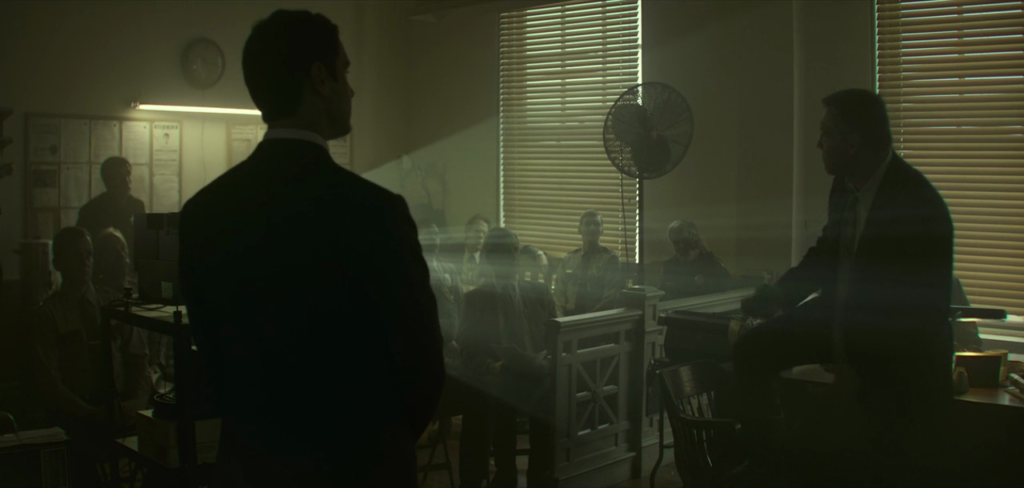
Ford and Tench head to a small town police force to help teach them, but it’s like pulling teeth. The show makes a solid effort in depicting it as a two-way issue. The local cops aren’t just rubes for not getting why they need to empathize with young Charles Manson. The FBI doesn’t have enough information or ideology to explain why what they’re doing is important. Tench is a good mid-ground character for this. He believes one-hundred percent in what Ford is doing, but Ford is a “College Boy,” even if he isn’t. Tench emphasizes that you need to know your audience, which is absolutely true.
Fincher himself brings a lot of interesting touches to this series, which I hope carries through. He directed the premiere of House of Cards, and that show has kept the same kind of sterile, pristine style throughout. Mindhunter is different though. Visually it reads like Zodiac if Fincher had filmed it in 1998. The title sequence alone is extremely ‘90s thriller. In a good way. He has a way of pulling off some fantastic choices while making it seem so easy.
While Ford and Debbie are in a bar, I was thinking about Fincher’s use of sound design in loud environments, mixing the dialogue near the same level as the background, so it basically puts you right in the moment. He did this expertly in the club scene with Justin Timberlake and Jesse Eisenberg in The Social Network. Shortly after I was thinking of that, Ford and Debbie are watching a band play and subtitles appear. Not just standard subtitles though, ones that emphasize words and parts of the sentence to deliver exactly the impact the dialogue should.
Fincher isn’t phoning it in because “it’s just television,” he’s clearly creating something original instead of doing a straight copy of Zodiac or Seven, while still drawing from both of those sources. Though, can you blame him? They’re two of the best movies of all time.
I’m excited to see where the series goes from here. The understanding of a killer’s mind and how it works is much more interesting to me than actually seeing any murders. Someone dispassionately discussing how and why they killed can be infinitely more chilling than any gore effects could possibly convey. Luckily for me, this looks exactly like that kind of show.
Verdict
Watch it! So far, Mindhunter has been amazing. I’m shocked there hasn’t been a bigger advertising push. It’s got David Fincher behind it and has a true crime bent, which is extremely popular these days. Regardless of that, I feel like word-of-mouth will be good to this series. I know I plan on recommending it to everyone I know, and I’ve only seen the first episode.


